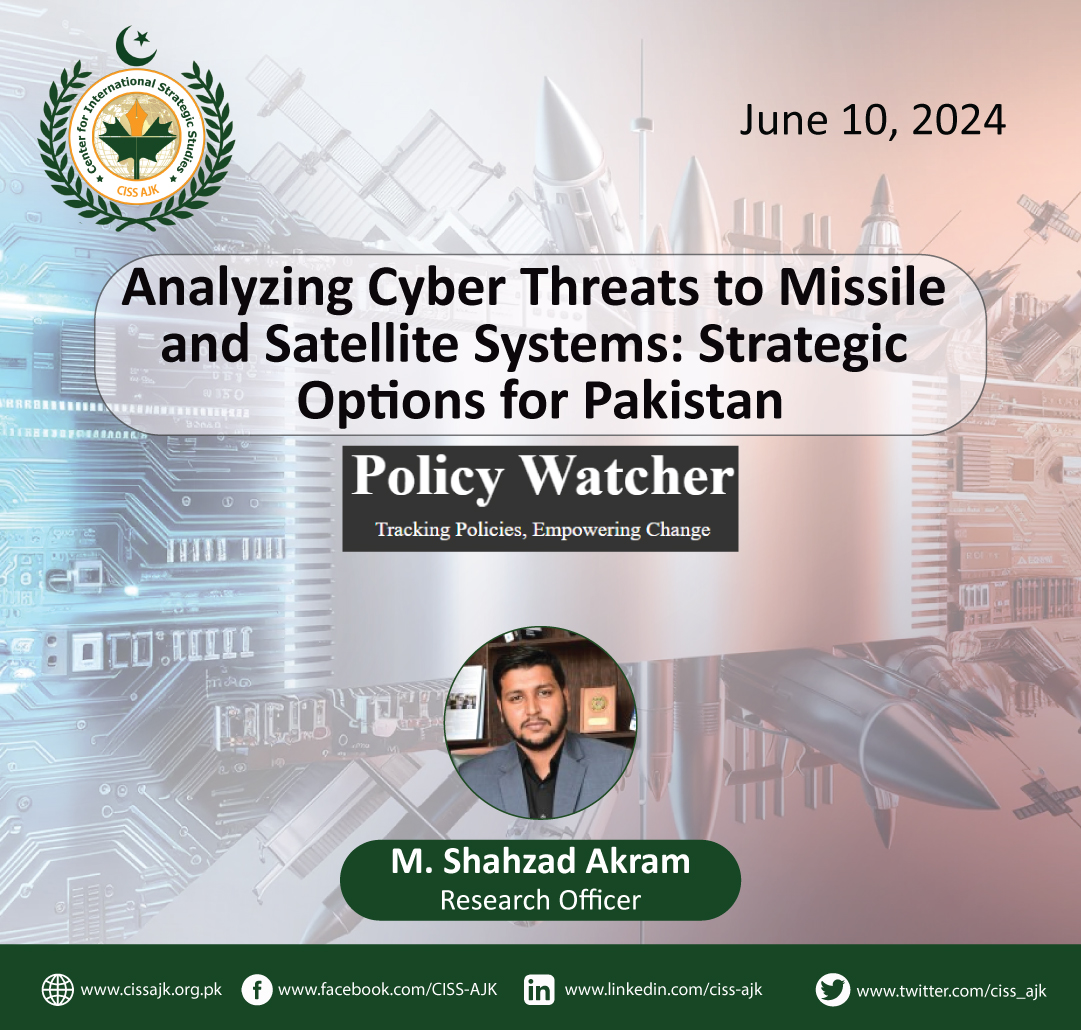Several historical incidents ranged from the 1962 Moorestown missile false alarm to the 2023 Dozor-Teleport cyberattack and the US cyber-attack on North Korean ballistic missiles in 2012 that caused a failed ballistic missile test illustrating the diverse nature of these threats. These incidents underscore the vulnerabilities in space and missile systems to various forms of disruption, whether accidental or malicious. The chronological mapping of these incidents provides insight into how cyber threats have evolved and become more sophisticated over time.
With the rise of digital threats, a strong inclination has been witnessed toward unilateral statements and efforts in hardening national systems against cyber attacks. These include improvements in early warning systems, hardening of satellites, protecting ground-based systems, and legislative efforts to strengthen cybersecurity. Countries like the USA, China, and Russia have taken significant steps to bolster their defenses against cyber threats.
While bilateral and multilateral agreements are limited in number. They play a critical role in enhancing international cooperation and understanding. Agreements like the 1988 US-USSR Agreement on Notifications of ICBM and SLBM Launches the 2010 China-Russia Agreement on Ballistic Missiles and Space Launch Vehicles and the 2015 US-China cybersecurity agreement exemplify efforts to reduce the risk of misinterpretation and accidental escalations. The increasing trend towards deliberate targeting in cyber incidents suggests a future where space and missile infrastructure will remain attractive targets for state and non-state actors. One such example was during the trump era when Iran shot a US drone and the US President Donald Trump halted a missile strike against Iran but they launched a cyber-attack on Iran’s missile system to prevent any counterattack.
The involvement of international bodies like the United Nations in creating norms and principles for responsible behavior in cyberspace signifies the global recognition of these threats. Unilateral and bilateral CBMs are vital in ensuring the reliability and predictability of critical infrastructure. They instill domestic and international confidence, reducing the risk of accidental escalation.
There is an urgent need for greater bilateral and multilateral engagement to address the blurring lines between civilian and military infrastructure in space. That must emphasize the need for a comprehensive approach that combines technical, political, and diplomatic efforts to ensure stability in space and cyberspace. Moreover, the document provides a detailed account of the evolving nature of cyber threats to missile and satellite infrastructure and the varied responses through CBMs. It highlights the importance of continued vigilance, adaptation, and international cooperation in addressing these challenges to maintain peace and security in the increasingly contested domains of space and cyberspace.
Cyber Threats to Missile and Satellite Infrastructure pose a serious threat to Pakistan’s national security. Given Pakistan’s reliance on satellite and missile technology for both civilian and military purposes, the increasing sophistication of cyber threats poses a significant risk to its national security and strategic stability. The South Asian region, characterized by complex geopolitical dynamics, particularly with India, necessitates that Pakistan maintains robust and secure missile and satellite systems. Cyber vulnerabilities in these systems could lead to escalations or misunderstandings in this sensitive region. As Pakistan continues to develop its space technology for economic purposes, including communication and weather forecasting, protecting these assets from cyber threats is critical to its economic stability and technological advancement.
Policy Options for Pakistan
Strengthening Cybersecurity Infrastructure by investing in and upgrading cybersecurity measures for missile and satellite systems is crucial. This includes developing indigenous cybersecurity solutions tailored to Pakistan’s specific needs and vulnerabilities. Pakistan must establish a comprehensive national cyber policy to protect its critical infrastructure. A comprehensive cyber policy that encompasses the defense, civil, and commercial space sectors. This policy should address threat identification, risk assessment, and response strategies.
Pakistan should also focus on enhancing international cooperation with like-minded states. Pakistan should actively engage in bilateral and multilateral dialogues on cyber-space security. Participation in international frameworks and agreements related to cyber-space and cyber norms would bolster Pakistan’s understanding and ability to respond to these threats. Pakistan should also emphasize developing confidence-building measures (CBMs) in cyber-space. Pakistan can initiate or join regional and international CBMs aimed at reducing the risks of cyber conflict. These could include transparency measures, information-sharing agreements, and joint cyber drills.
Collaborating with private sector entities specializing in cybersecurity can provide access to advanced technologies and expertise. This approach would enhance the protection of critical space infrastructure. Pakistan must invest in education and research in the fields of cybersecurity and space technology is vital. This would involve supporting universities and research institutions to produce skilled professionals and innovative solutions.
To keep its critical infrastructure secure Pakistan must conduct regular cyberattack simulations and preparedness drills to help assess the readiness of Pakistan’s missile and satellite systems against potential cyber threats. Pakistan should keep reviewing and updating legal frameworks to encompass the evolving nature of cyber threats. This would include defining clear protocols for response and attribution in the event of a cyberattack on space assets.
In conclusion, Pakistan faces significant challenges due to the evolving nature of cyber threats in space. Addressing these challenges requires a multifaceted approach that combines strengthening cybersecurity infrastructure, enhancing international cooperation, and investing in education and research. By implementing these policy options, Pakistan can safeguard its space and missile infrastructure and contribute to regional and global stability.



